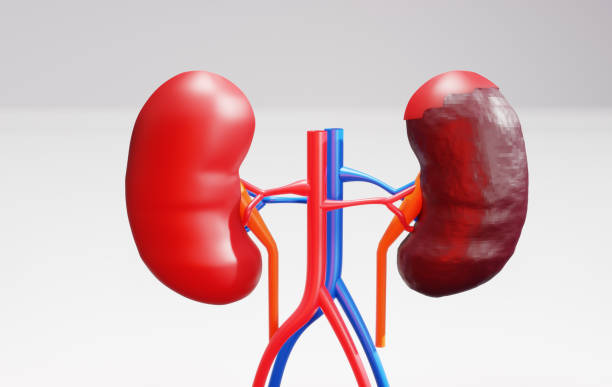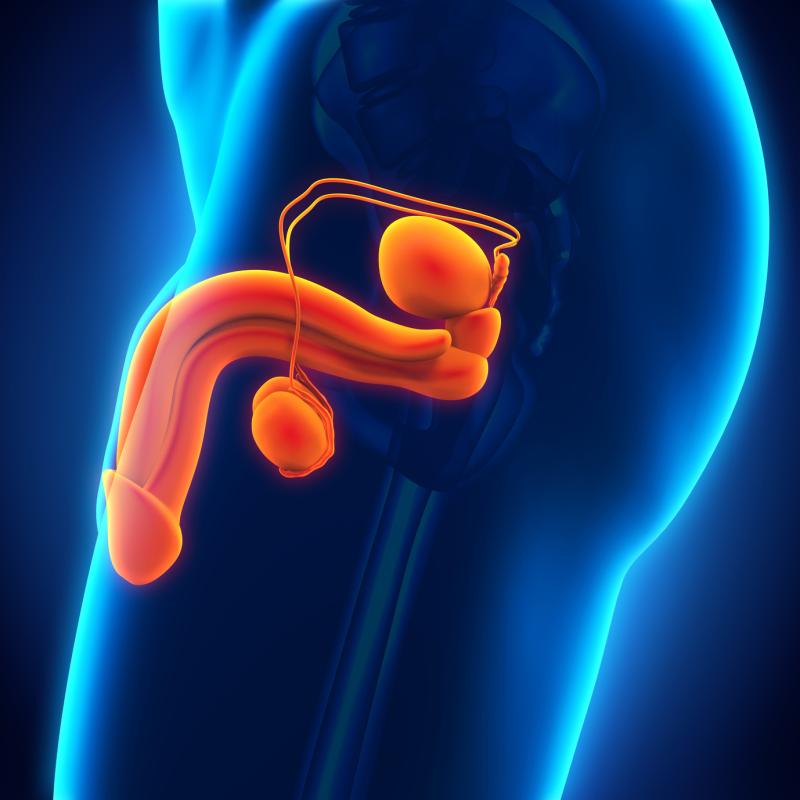How is Kidney Cancer Treated?
Kidney cancer is a type of cancer characterized by the uncontrolled proliferation of cells in the kidneys. It is known for being treatable when diagnosed in the early stages. kidney cancer treatmentIt varies depending on the stage of the cancer, the patient's health status and other factors. Treatment options include surgery, radiotherapy, immunotherapy, and rarely chemotherapy.
In what cases is kidney cancer treated?

kidney cancer treatmentIt is applied depending on the stage and type of cancer, the patient's health status and preferences. Treatment is done to control the cancer, prevent its spread, and improve the patient's quality of life.
When cancer is found only in the kidney, surgery is the most effective treatment. In this case, cancerous tissue is removed through radical nephrectomy or partial nephrectomy. If the cancer has spread to surrounding tissues or reached nearby lymph nodes, surgery may still be an option. In addition to surgery, immunotherapy or targeted therapies may also be used.
When cancer has spread to distant organs, treatment aims to control the spread of cancer. At this stage, immunotherapy, targeted therapies and radiotherapy can be applied. If cancer reoccurs after treatment, treatment options are determined by the location of the recurrence and health status. Surgery, immunotherapy, or targeted therapies may be reconsidered.
Palliative care may be administered to relieve pain and other symptoms caused by cancer. This approach is aimed at improving the patient's quality of life and includes non-therapeutic supportive care.
The treatment plan for each patient is prepared specifically by healthcare professionals. When making treatment decisions, the patient's expectations, benefits and risks of the treatment are weighed.
How is Kidney Cancer Treated?

kidney cancer treatmentIt varies depending on the stage of the disease, the type of cancer, the patient's health status and personal preferences. The treatment process is usually carried out by a team.
Surgery is the most common treatment for localized kidney cancer. Sometimes it can also be applied in advanced stage cancers. Radical Nephrectomy is the removal of the affected kidney along with fatty tissue, adrenal gland and lymph nodes.
Partial Nephrectomy is the process of removing only a part of the cancerous tissue and the remaining part of the kidney can continue to function. It helps protect kidney functions and is preferred in early stage cancers.
Ablation and Other Local treatment offers alternatives for patients who are not suitable for surgery and is used for small tumors. Cryoablation is the process of destroying cancerous tissue by freezing it.
RFA is the process of destroying cancerous tissue by heating it using high-frequency radio waves. Medicines are used to stimulate the immune system to fight cancer. Immunotherapy may be particularly effective in treating metastatic kidney cancer. It provides a long-term response in some patients.
Radiation therapy is often used to control pain caused by kidney cancer. It is not generally used as the primary treatment of kidney cancer. Kidney cancer is less sensitive to chemotherapy than other types of cancer. Therefore, chemotherapy is not a frequently preferred method in the treatment of kidney cancer. However, it may be useful in certain situations and in some types of advanced cancer.
Treatment options and planning are personalized depending on the patient's specific condition. The potential benefits, risks and side effects of each treatment method are carefully evaluated. It is important for patients to have open communication with their doctors about their treatment options.
Recovery Process After Kidney Cancer Treatment

kidney cancer treatment The recovery process varies depending on the treatment method, the patient's health condition and any health problems. Recovery involves both physical and emotional aspects and may require extensive support for the patient.
- The hospital stay after partial nephrectomy and radical nephrectomy is several days. This period may vary depending on the general condition of the patient and whether there are any complications.
- Pain after surgery is a normal part of the healing process. Doctors may recommend prescription painkillers to manage pain.
- It is important to avoid heavy lifting for the first few weeks and gradually return to daily activities. The doctor will make recommendations on when the patient can return to activities.
- Regular medical follow-up is important to detect early the risk of cancer recurrence or metastasis.
- Ablation and other minimally invasive methods generally have faster recovery times. Most patients can return to normal activities within a few days after the procedure.
- Depending on the method, mild pain and swelling may be experienced in the procedure area. This is usually short-term and manageable.
- Immunotherapy and Targeted Therapy often involve long-term treatment regimens. The healing process continues in parallel with the duration of the treatment.
- Side effects of immunotherapy and targeted therapies may differ. Doctors may recommend supportive treatments to manage these side effects.
- Patients receiving radiation therapy may feel fatigued during and after treatment. Fatigue may persist weeks or months after treatment ends.
- Skin sensitivity may increase in the treated area. Doctors can give special instructions for skin care.
kidney cancer treatment The recovery process varies for each patient. It requires a customized approach based on individual needs. It is important for patients to strictly follow their doctors' recommendations during the post-treatment period and share their concerns with the healthcare team.






